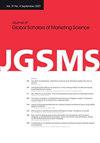Ethnic bias and design factors impact response rates of online travel surveys
IF 2.7
Q3 BUSINESS
Journal of Global Scholars of Marketing Science
Pub Date : 2021-02-08
DOI:10.1080/21639159.2020.1808827
引用次数: 0
Abstract
ABSTRACT Low response rates are pointed as a critical problem in online travel surveys. Tourism researchers need to strive to find ways to increase response rates in order to improve the surveys’ coverage as well as representativeness. Through an experiment, this paper specifically examines the design factors that provide social clues in online survey, and the timing of the solicitation. The results indicated that solicitations sent with a researcher’s Western name induced dramatically more responses (>60%) than did the same solicitation sent with a Chinese name; the attachment of an authoritative title for the Chinese researcher did not mitigate the problem; surveys sent out on Saturday with a reminder on Monday generated the highest response rate; among the variations tested, wording of the solicitation email’s subject line had insignificant impact on response rates. Details of the experiment and an explanation of results based upon underlying social factors are discussed.种族偏见和设计因素影响在线旅游调查的回复率
摘要在线旅游调查指出,低回复率是一个关键问题。旅游研究人员需要努力寻找提高回复率的方法,以提高调查的覆盖率和代表性。通过实验,本文具体考察了在线调查中提供社会线索的设计因素,以及征集的时机。研究结果表明,以研究人员的西方名字发出的征集比以中国名字发出的相同征集引起的回应要多得多(>60%);中国研究人员的权威头衔并没有缓解问题;周六发布的带有周一提醒的调查产生了最高的回复率;在测试的变体中,征求电子邮件主题行的措辞对回复率的影响微乎其微。讨论了实验的细节以及基于潜在社会因素对结果的解释。
本文章由计算机程序翻译,如有差异,请以英文原文为准。
求助全文
约1分钟内获得全文
求助全文

 求助内容:
求助内容: 应助结果提醒方式:
应助结果提醒方式:


